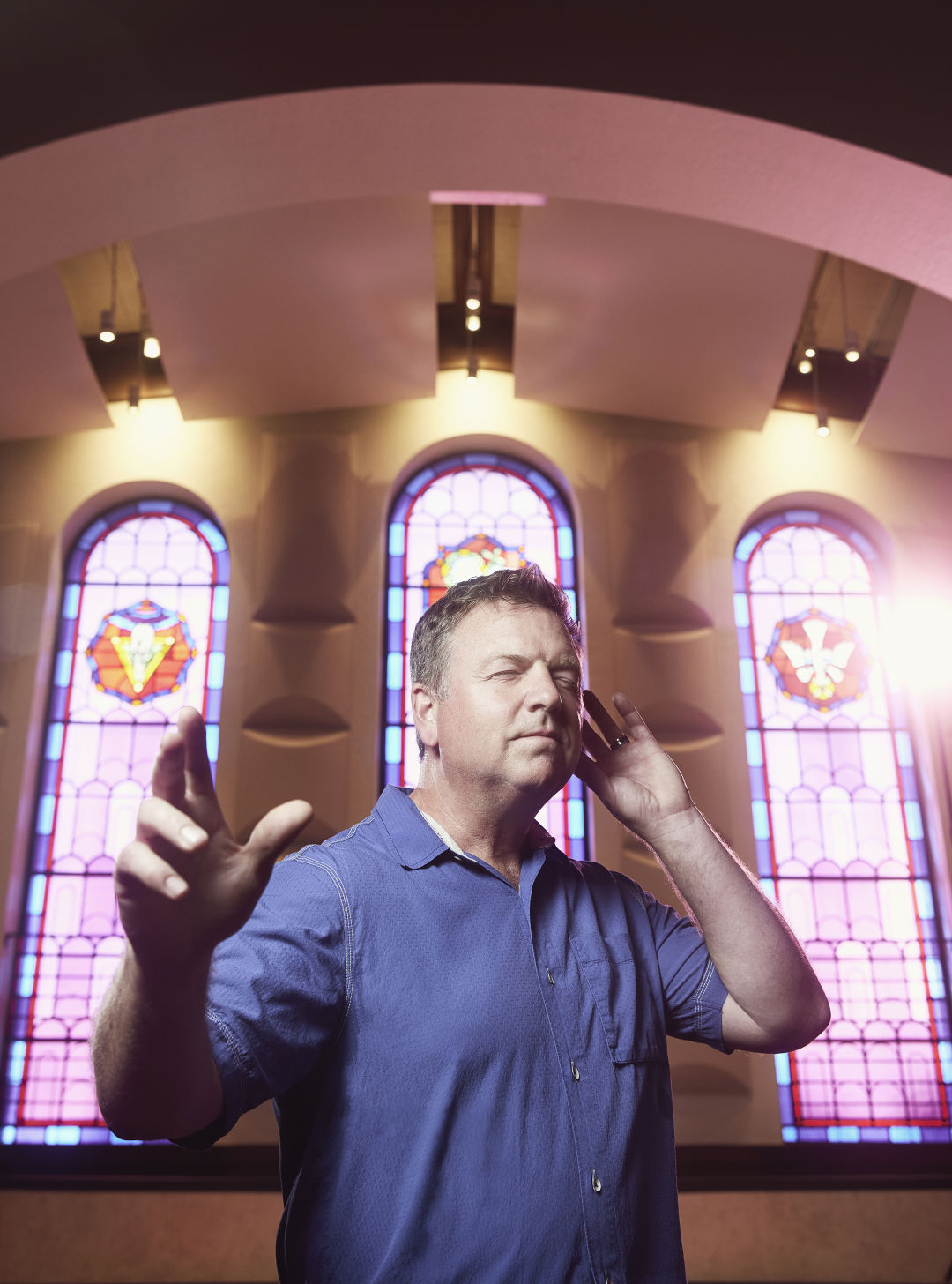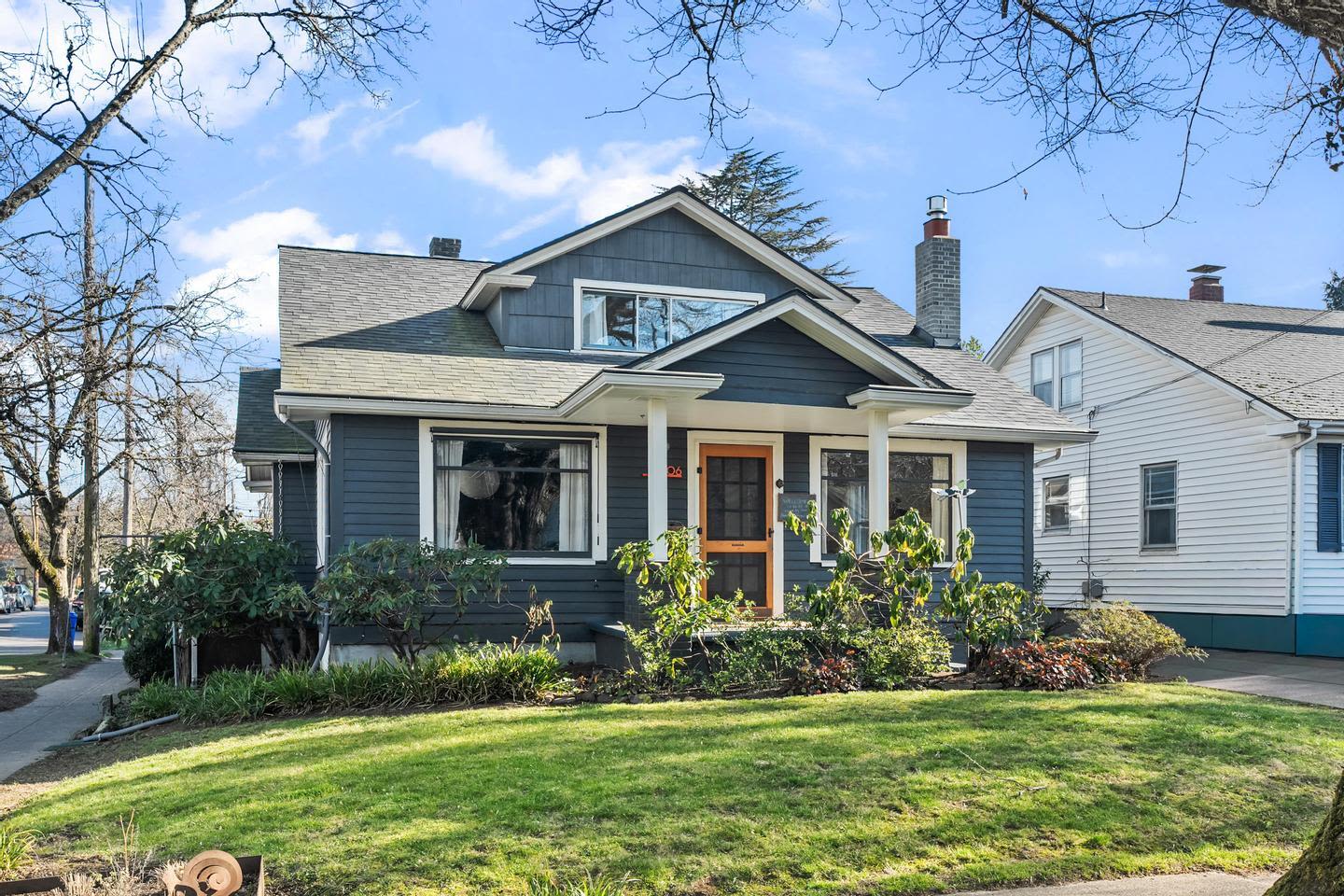In Noise Hell? This Portland Sound Engineer Has Heard It All Before.

Tobin Cooley at Holy Trinity Greek Orthodox Cathedral, where he renovated the acoustics
Image: NashCO Photo
Say your neighbor is a wee bit noisy, and plunges you into acoustic hell. Perhaps it’s 2 a.m. partying, or a barking dog, or the appearance of an industrial air conditioner five feet from your home. Shortly after your sanity has gone to hell—but before you up and move—you call acoustical engineer Tobin Cooley, of consulting firm Listen Acoustics. His phone rings, he says, when there's already "conflict between people, and it’s escalated, and it’s fairly urgent.” You're familiar with his work around town, like the Christmas carols at the Grotto and All Classical Portland’s new digs in the KOIN Tower (with a performance space and audio studios overlooking the city), and in what you don't hear: he once tricked out his garage so he could play drums and bass at all hours, and the neighbors never heard. Here Cooley explains, in his own words, how he solves his fellow Portlanders’ sound crises.
There’s a certain amount of emotion about sound. Most people don’t understand it well, but they know what’s bothering them, and they don’t know how to solve the problem. They may have tried different things that they’ve read on the internet. Once they’ve gotten to me, they’re like, “Just please tell me what I need to do to solve this.” A lot of what I do is calm and educate people about acoustics. Professionals, too—there’s a lot of misinformation in the architecture and design industry about acoustics.
People usually call because something unexpected is destroying their quality of life. In a high-end neighborhood in the West Hills, people bought a beautiful, classic Portland house, and didn’t think about hearing freeway noise until they slept there. They came to me and said, “What can we do?” The solutions are often expensive, and have visual impacts, so we need to come up with creative ways to solve problems without taking away from the reason they purchased the home in the first place. Typically in a residence, there are a lot of factors equally or more important than sound. Rebuilding is required in some cases.
There’s a series of solutions. The first is a barrier that looks reasonable but doesn’t block the views. And windows are usually a weak link, especially historic windows—so we maintain the look and feel while adding glazing modifications and additions that give higher performance.
Up in Camas right now, a commercial building put all of their HVAC units right next to the backyards of these very nice houses. As soon as they fired those things up, the neighbors were blown away. You can’t sit on your patio, and you can’t sleep at night because it’s blasting through your windows. Up there the noise code is not as well managed as Portland’s—there’s no dBA (decibel) limits. In Portland, the noise control officer would write a letter, and start fining the noise source thousands of dollars. Portland has a very well-developed noise code; it’s very clear how much a neighbor can make noise and interfere with the quiet serenity of your property.
There are active parts of Portland that are loud all the time. Portland tends to be fairly vibrant in the evenings, and if you’re near a freeway or the airport it’s obviously going to be louder. It’s very dependent on neighborhood.
Portland developers are very keen about high-quality sound in buildings, particularly in separating apartments and condos from each other for acoustics, and the quality levels are higher here than in many cities that I work in. I give credit to the early developers of the Pearl District, like John Carroll, who set a standard for good acoustics between spaces, so people buying units were used to high quality, and a lot of other developers followed suit. It’s not true of all developers, but a lot of the bigger ones are very interested in creating a product that encourages people to want to stay in the apartment.
My best clients want to avoid the problems they had on other projects, like a mechanical unit on the roof, and they can’t rent any of the units within 30 feet, which are the highest-priced units. They’ve said, “We don’t want to have that experience again. We want to have a serene environment.” So they hire me.




